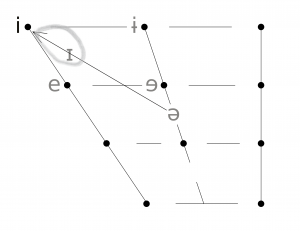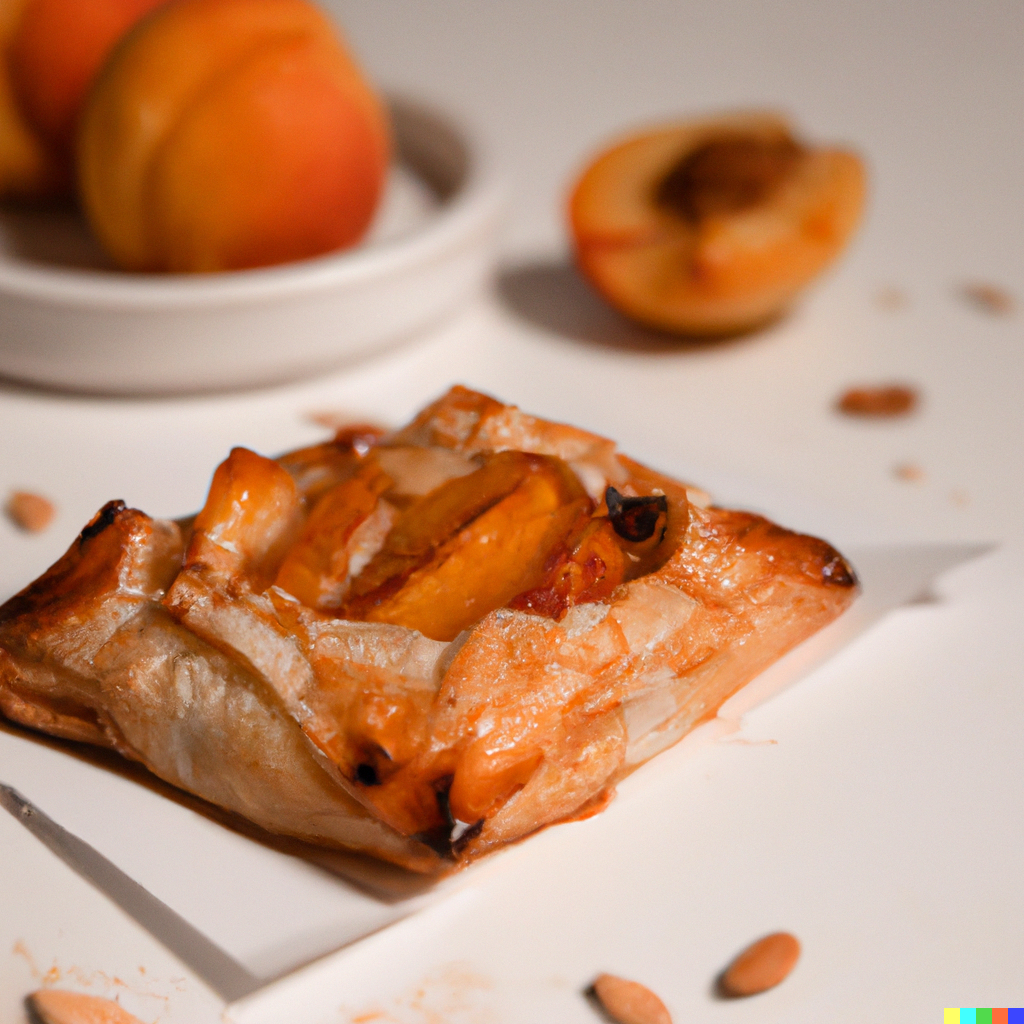9 The FLEECE Lexical Set
 The fleece lexical set is perhaps one of the most consistent in terms of its pronunciation, as it has very little variation across accents of English, occurring in words with the stressed vowel “ee,” or /i/. The vowel in fleece, sometimes called the “Long E” is Free, so it can occur with no following consonant as we get in words like free, ski, tea, and is always stressed in its dictionary form. In the British tradition where Free vowels are marked as “long vowels,” it is often transcribed phonemically as /iː/. In the American tradition, fleece is often transcribed with an onglide, either phonetically as [ɪ̯i], or phonemically as /ij/, though many accents may have more aggressive onglides up to and including [ə̯i].
The fleece lexical set is perhaps one of the most consistent in terms of its pronunciation, as it has very little variation across accents of English, occurring in words with the stressed vowel “ee,” or /i/. The vowel in fleece, sometimes called the “Long E” is Free, so it can occur with no following consonant as we get in words like free, ski, tea, and is always stressed in its dictionary form. In the British tradition where Free vowels are marked as “long vowels,” it is often transcribed phonemically as /iː/. In the American tradition, fleece is often transcribed with an onglide, either phonetically as [ɪ̯i], or phonemically as /ij/, though many accents may have more aggressive onglides up to and including [ə̯i].
For weak syllables, the onglide is not an option. Words such as react, create, beyond, sierra, with a weak fleece vowel before another vowel, have a vowel that is slightly reduced, but mostly in the same range as fleece. Other instances, where some accents might have a contrast to schwa as a weak/unstressed kit vowel (see the kit Lexical Set), others might have a weak fleece vowel. So the first syllable of a word like believe might be pronounced with a range of vowels: [bəˈliv, bɪˈliv, biˈliv].
At the end of a word, as in pretty, sari, coffee, the unstressed vowel that in some accents is parallel with fleece (while in others is closest to kit, is covered by the Lexical Set happy. This can also include prefixes[1] ending in ‹i›, as in multi-, semi-, anti-, or compounds where the first element ends in ‹y›, such as everything, anyone, and other similar contexts.
The fleece Lexical Set does not contain the words with this vowel followed by /r/; these words are covered in near.
- 🕊Free: does not require a following consonant, and can exist on its own
- in stressed syllables; in unstressed syllables the vowel can be reduced somewhat—see happy for more details.
Spellings
Wells, in devising the fleece Lexical Set, created three subgroups that correspond to historical pronunciations. When accents split fleece, they tend to do so along these historical lines.
fleece Ⓐ: historical /eː/, spelled ‹e, ee, eCe›, as in see, meet, glebe;
fleece Ⓑ: historical /ɛː/, spelled ‹ea, oeC, aeC›, as in seat, amoeba, aegis;
fleece Ⓒ: historical loan words, spelled ‹iCe, iCV, i›, as in police, visa, ski.
For our purposes, perhaps fleece Ⓑ is most interesting as it occasionally is pronounced differently from how fleece Ⓐ and Ⓒ are pronounced. The historical pronunciations changed during the Great Vowel Shift at the end of the 15th century, where fleece Ⓐ /eː/ became /iː/, and fleece Ⓑ /ɛː/ became /eː/. At the end of the 16th century, when the fleece Merger of Ⓐ and Ⓑ occurred, some accents stayed behind; these accents don’t have meet/meat as homophones. However, it is worth saying that accents that preserve the split are becoming extremely rare, and the pronunciation may be extinct or considered a stereotype.
Pronunciations
The fleece lexical set is pronounced with the close front vowel, completely unrounded, and in emphatic pronunciations, frequently spread aggressively; hence the expression “Cheese!” when taking a photo to approximate smiling with spread lips [i͍]! Mostly fleece is [i], with variations in the range of [i ~ i̠ ~ i̞] in many if not most mainstream accents of English. fleece can also take an onglide, where the vowel begins more open and closes towards /i/, in the range of [ə̯ɪ ~ ɪ̯i ~ i̯j]. This occurs more frequently in free settings, where the fleece vowel is its longest, and at the end of an utterance.
For those without the fleece merger, which might seem like a “Meet/Meat Split”—in other words, for whom fleece Ⓐ and fleece Ⓑ don’t match—the vowel quality of fleece Ⓑ is in the range of [e ~ ɛ]. Wells suggests that these pronunciations are mostly in decline, but are/were heard in parts of Ireland, and in Lancashire, Cheshire, Shropshire, Devon, Hampshire and Wiltshire. He also notes the possibility of [ɪə̯] for Lancashire, Yorkshire and Lincolnshire.
Some second-language (L2) speakers of English have a fleece pronunciation that is more close and front than that of a first-language (L1) English speaker. While most vowel charts represent fleece for English in an idealized position in the uppermost-frontmost, top left corner position, the fact is that fleece is often mid-centralized, even just a little, when compared with these L2 speakers. My own French pronunciation of ici has a much more peripheral (closer-fronter) articulation than my English pronunciation of easy.
Personal Pronunciation
Time to take a close listen to your personal pronunciation of fleece. Begin by exploring fleece Ⓐ words, such as seed, bee, sweet. Use an audio recorder to experiment on your own, or work with a classmate, friend, coach or teacher to identify how fleece in your speech compares with fleece in others’ speech. Try lengthening the sound of your fleece vowel, and then attempt to subtly shift it around in the vowel space—up, forwards, down, and back—in tiny increments. As it is the most close front vowel, as you experiment you should feel the top surface of the front of your tongue moving delicately up and down, towards/away from your alveolar ridge and hard palate, making more or less space in the front of your mouth. Take it to the extreme as well, making the most close/front sound possible, so that the narrowness of the space between your tongue and the gum ridge almost starts to cause turbulence: [i—j—i—j—i]. Explore the diagonal direction from [ə], slidinɡ through to [i], and go back and forth: [i—ə—i—ə—i]. fleece should have no lip rounding, and some speakers find that they have some lip spreading in emphatic pronunciations. Compare fleece with trap or bath, and see how great the contrast is between the vowels.
Decide which vowel symbol best suits your fleece Ⓐ subgroup. Is it more forward [i̟] or further back, [i̠]? Is it more mid-central [i̽]? Do you have an onglide scooping into it, especially in Free syllables like free, agree, Jay-Z? If so, where’s your starting point? [ə ~ ɪ ~ ɨ] seem like possible qualities to explore.
If your fleece vowel is… (use whichever vowel symbol is appropriate for you)
- high, use the raised diacritic [ i̝ ], a small T pointing up
- open, use the lowered diacritic [ i̞ ], a small T pointing down
- pushed forward, use the advanced diacritic [ i̟ ], a tiny plus sign +
- pulled back, use the retracted diacritic [ i̠ ], a tiny minus sign –
- if you add lip-spreadinɡ, use the lip-spreadinɡ diacritic [ i͍ ], a tiny two-headed arrow, which represents the lips spreading left and right
Next, take a moment to explore whether you have the fleece merger or not. Are the following minimal pairs of fleece Ⓐ / fleece Ⓑ possible homophones for you? key/quay*, see/sea, flee/flea, lee/lea, reed/read, seem/seam, teem/team, heel/heal, reek/wreak, leek/leak, creek/creak, lief/leaf, beech/beach, piece/peace, Greece/grease, leech/leach, beech/beach. If they match, then feel free to play along, exploring vowel qualities for fleece Ⓑ. If you have a separate fleece Ⓑ pronunciation, is it merged with the face Lexical Set? If not, try to ascertain what the pronunciation difference is, and use the diacritics above, along with vowels in the range of [ɪ, e, ɛ] to try to capture the nature of it. Is it a diphthong? Does it have an onglide, such as [ə̯e], or an offglide, such as [eɪ̯]?
Weak fleece Pronunciation Options: Weak fleece is frequently just shorter than it is in stressed syllables. In the transcription system preferred in the UK, this contrast is made visible by having stressed fleece transcribed with a length mark [iː], while this “weak” vowel is merely [i]. (However, it should be noted that some British dictionaries make use of the unadorned version /i/ to represent a vowel that could be either fleece or kit, depending on accent.) Similarly, in the US phonological tradition, strong fleece is [ij][2] and weak is merely [i]. As I aim to support a more phonetic notation system, I would argue for trying to capture the vowel quality over its length, though both are valid ways of transcribing what someone might say.
On top of the diacritics described above, try the following to capture your unstressed fleece vowel. If your Weak fleece vowel is… (use whichever vowel symbol is appropriate for you)
- made towards the center of the mouth, use the mid-centralized diacritic [i̽], a small X in place of the dot, or “tittle,” over the symbol
- shorter, use the extra-short diacritic, [ĭ] a small cup shape or “breve” above the symbol
Alternate Pronunciations
Experiment with the fleece Word Lists, Phrases and Sentences with the following vowels:
As you move the vowels in the directions recommended, see whether that modified oral posture might inspire you to move the articulation of consonants and other vowels in the word in similar ways. Does it remind you of an accent other than your own?
Word Lists for fleece in a Free Syllable, followed by a pause, or by another vowel
KEY: ◾︎fleece in stressed syllable
being, European, museum, theatre, Caribbean, vehicles, seeing, agreeing, theory, neon, realistic, creative, Ikea, Korea
Word Lists for fleece, sorted by the consonant that follows
KEY: ◾︎fleece in stressed syllable ◽︎fleece in unstressed syllable
PLOSIVES
-p
-b
-t
-d
-k
-ɡ
AFFRICATES
-tʃ
-dʒ
NASALS
-m
-n
-ŋ
FRICATIVES
-θ
-ð
-f
-v
-s
-z
-ʃ
-ʒ
APPROXIMANTS
For fleece followed by /-r/, see near.
fleece before /l/ can be affected by the following consonant; the vowel is often pulled back, especially if /l/ is articulated with the dark-l [ɫ]. In some accents with a particularly dark-l, there is a diphthongization [iəɫ]. This can go so far as to break into two syllables, [ijəɫ ~ ijɫ̩]. See “fleece–kit Merger before /ɫ/” in Mergers below.
-ɹ
-l/ɫ
-w
Short Phrases
- Perceive a decent increase.
- Premium lean beef.
- Steamed green beans.
- Teach speech technique.
- A unique teak cheeseboard.
- The cerise Lamborgini.
- Dijon on your quiche.
- The appeal of Remington Steele.
- Patisserie made with filo and peaches.
- Anita’s chic boutique is discreet.
- An oblique critique of Uyghur policy.
- Beach volleyball in Tenerife.
- Norwegian skijoring team.
- Steve McQueen’s screenwriting is a dream.
- Pima cotton from Egypt.
- Aviva studied Hebrew in Tel Aviv.

Sentences
Level 1
Short with 2-3 words, underlined
- The naïve diva is seething.
- The teenager wore a revealing bikini.
- The Eames chair gleamed.
- He swore allegiance to the French Foreign Legion in Egypt.
- A sneak peek at the new Mario & Luigi game.
Level 2
Short with 4-5 words, underlined
- Phoebe loves saganaki, a flaming Greek cheese dish.
- Philippe and Rashida took their jeep to the beach for a treat.
- An elite barkeep makes margaritas by the litre.
- Is there a technique to defeating extreme fatigue?
- They believe the thief stole their reefer and they’re peeved about it.
Level 3
Medium with 3-4 words, not underlined
- The ballerina seemed serene while dancing her routine.
- Are Labrador Retrievers a good dog breed for skijoring?
- Meanwhile, the quarantine did little to stop COVID-19.
- The Indigenous Knowledge Keepers came to the feast for the opening of the Tipi.
- Tito, do you want Orange pekoe tea or a cappuccino?
Level 4
Hard with 4-6 words, not underlined
- The Rainbow Lorikeet from Indonesia hurt its beak on the peach pit.
- We went jet skiing at the marina on the main island of Viti Levu in Fiji.
- My Regent Seven Seas Cruise—with a Veranda Suite!—stopped in Riga.
- We pleaded with the geek to tweak the settings on the flatscreen TV.
- It’s an mp3 of free jazz and beebop, played on the viola, ocarina and tambourine.
Mergers
fleece–kit Merger: This is found in many second language (L2) varieties of English, such as Black South African English (spoken by Xhosa and Zulu L1 speakers); it can also be found some forms of Scots. Examples of fleece–kit minimal pairs/ homophones: ease/is, read/rid, week/wick, team/Tim, green/grin, wheel/will, leave/live. If you do not have this merger, try to match them, using [i].
If you have this merger, then try to differentiate the fleece and kit words in this sentence. Experiment with fleece/kit pairs such as: [i/ɪ, i̽/ə, i̟/ï, iə̯/ɪ̠].
-
- Tim joined the team that will read about how to rid the car of its wheels?
- I cancelled my mail subscription for People Magazine because they keep shipping it to the wrong address!
- You have to sit after you read this tweet, Nicki Minaj is coming to town for a meet and greet!
- I saw a shadow of creature in the kitchen before I reached for the light switch.
face–fleece Ⓑ Merger: In some varieties of Irish English, such as County Tyrone in Northern Ireland, the so-called “Meet-Meat” split occurs (fleece Ⓑ splits from the rest of the set, and merges with face). Minimal Pair/homophones include: raid/read, plays/please, made=maid/mead, main/mean, mail/meal, same/seam, sale/seal, male/meal, wave/weave, lake/leak. The vowel used in this merger is in the range of [e ~ eə̯]. If you do not have this merger, try to match them using first one and then the other of those vowels.
If you have this merger, then try to differentiate the face and fleece Ⓑ words in this sentence. Experiment with face/fleece Ⓑ pairs such as: [eɪ̯/i, ɛi̯̽/i̽, e̞/ə̯i, æɪ̯/i̝]
-
- The maid brought mead with the meal after trying to seal the sale of the male animal.
- This new bathing suit has breathable material underneath that also is faithful to our brand of veganism.
- Octavia deceived a customer and received a complaint as their behaviour was not favourable.
- This app has a new feature to showcase recent news stories and post them on Facebook.
 fleece–kit before ɫ Merger: In the US South, in an east-west band from North Carolina through Tennessee, Alabama to Louisiana, we get the “Feel-Fill Merger”, where the vowels of fleece and kit before /ɫ/ are centralized to something like [ɪ̽ɫ], and merged. Minimal Pair/homophones include: wheel=we’ll=weal/will, deal/dill, teal/till, feel/fill, field/filled, Neil/nil, meal/mill, seal/sill, reel/rill, heel=he’ll=heal/hill, peel/pill, keel=Kiel=Keele/kill, freely/frilly. If you do not have this merger, try making them match with [iə̯ɫ, ɪ̽ɫ]. If you do have this merger, explore differentiating them with the following fleece/kit pairs: [i/ɪ, iə̯/ɪ̠, i̟/ï, ijə̯/ɪ̠ə].
fleece–kit before ɫ Merger: In the US South, in an east-west band from North Carolina through Tennessee, Alabama to Louisiana, we get the “Feel-Fill Merger”, where the vowels of fleece and kit before /ɫ/ are centralized to something like [ɪ̽ɫ], and merged. Minimal Pair/homophones include: wheel=we’ll=weal/will, deal/dill, teal/till, feel/fill, field/filled, Neil/nil, meal/mill, seal/sill, reel/rill, heel=he’ll=heal/hill, peel/pill, keel=Kiel=Keele/kill, freely/frilly. If you do not have this merger, try making them match with [iə̯ɫ, ɪ̽ɫ]. If you do have this merger, explore differentiating them with the following fleece/kit pairs: [i/ɪ, iə̯/ɪ̠, i̟/ï, ijə̯/ɪ̠ə].
-
- I feel Phil can’t seal the window sill till he can get some teal paint.
- On Mount Maunganui, in New Zealand, there will wheelchair accessibility along the boardwalk.
- Children are really great on film because they always say how they feel.
- Emilia loved her apartment building until there was a leak in her ceiling.
You can also try this with a vocalized L, that is one that is pronounced as a vowel, such as [o, ɤ, u, ɯ].
Note that there are many accents of English where this merger doesn’t occur, but where fleece before Dark-l breaks into two syllables; in its most extreme form /iɫ/ is [ijəɫ]. If you have this feature in your speech, it is helpful to learn to do a non-breaking version for use in accents where breaking is inappropriate.
Splits
Geordie Freeze/Frees Split: In the Tyneside English accent of Newcastle Upon Tyne, fleece is split such that /i/ in Checked syllables, with a following consonant, is pronounced [i] freeze, while in morphologically Free syllables, with nothing following (or with an inflected ending, such as a plural s, or an –ing ending) is [ei̯] free, frees. Contrast pairs might include: please/plea, knead/knee, media/me, teacher/tea, these/thee, week/we=wee, leave/Lee=lea=Leigh, sheets/she, marine/Marie.
If you have this Split, try making them match with [i, ə̯i, i̽]. If you don’t have this split, try out the Tyneside version of these vowels comparing checked fleece [i] vs. free fleece [ei̯] in the following sentence:
Leave Leigh the sheets she bought, and bring the teacher’s tea to the marina, Marie.
Review
a glide into a diphthong. Frequently, a weak schwa-like sound, as the speak slides toward the nucleus of the vowel. The opposite of an "offglide".
When applied to a diphthong, "breaking" is a process where it becomes two syllables. When applied to a monophthong, it tends to mean diphthongization, where a mid-central schwa is added. The opposite is "smoothing"

